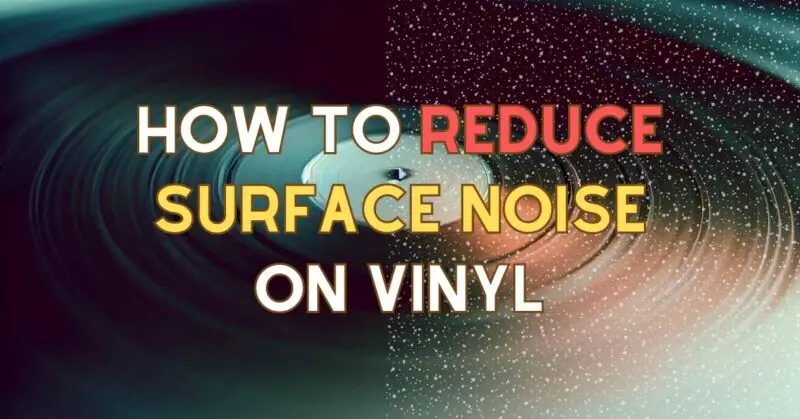Vinyl records have made a comeback in recent years, as music lovers rediscover the warm, authentic sound of analog recordings. However, one of the challenges of owning and listening to vinyl is dealing with surface noise, which can detract from the listening experience. Surface noise can be caused by various factors, such as scratches, dust, and wear and tear. But don’t let surface noise discourage you from enjoying your vinyl collection. In this article, we’ll share some tips on how to reduce surface noise on vinyl.
1. Clean your vinyl records
One of the most effective ways to reduce surface noise on vinyl is to keep your records clean. Dust, dirt, and other debris can get into the grooves of the record and cause surface noise. You can use a record cleaning kit, which typically includes a cleaning solution and a microfiber brush or cloth, to remove dirt and dust from your records. You can also use a carbon fiber brush to remove loose debris before playing your records.
2. Use a good turntable and cartridge
Another important factor in reducing surface noise is using a high-quality turntable and cartridge. A low-quality turntable or cartridge can exacerbate surface noise, while a high-quality turntable and cartridge can minimize it. Look for a turntable with a low wow and flutter rating, which indicates how stable the turntable’s speed is. A good cartridge should also have a low tracking force, which reduces wear and tear on your records.
3. Adjust the tracking force and anti-skate
Properly adjusting the tracking force and anti-skate on your turntable can also help reduce surface noise. The tracking force refers to the amount of pressure the stylus exerts on the record, while the anti-skate helps keep the stylus in the groove. If the tracking force is too high, it can cause excessive wear on the record and increase surface noise. If the anti-skate is not set correctly, it can cause the stylus to skip or mistrack, which can also increase surface noise.
4. Avoid playing damaged or worn-out records
If your vinyl records are scratched or worn out, they will likely produce more surface noise. While some surface noise is normal for vinyl, excessive noise from damaged or worn-out records can be distracting. It’s best to avoid playing these records or consider replacing them if they are important to your collection.
5. Store your vinyl records properly
Finally, storing your vinyl records properly can help prevent surface noise. Keep your records in their sleeves and store them upright to avoid warping or bending. Avoid exposing your records to extreme temperatures or humidity, which can cause damage.
In conclusion, reducing surface noise on vinyl requires a combination of proper cleaning, good equipment, and careful handling. By following these tips, you can enhance your listening experience and enjoy the warmth and authenticity of vinyl recordings.

